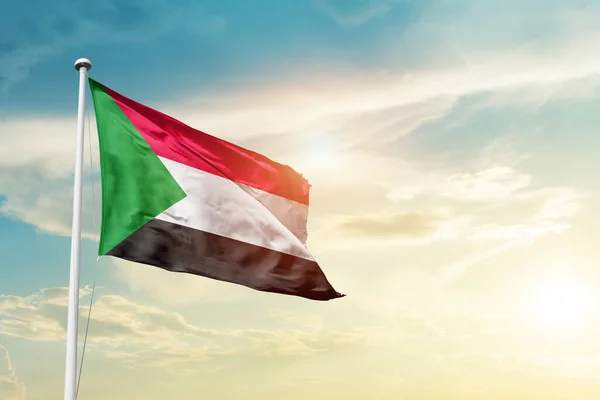One Year into Sudan’s War: A Call for International Action and Legitimacy

As Sudan marks the grim anniversary of one year since the outbreak of war, the silence from the international community resounds louder than ever. The conflict, born out of longstanding grievances and power struggles, has claimed countless lives, displaced millions, and left a trail of destruction in its wake. Yet, amidst this turmoil, the absence of meaningful intervention and support from international actors and institutions has been deafening.
According to recent reports, the humanitarian crisis in Sudan has reached alarming proportions, with over 10 million people in need of assistance, including food, water, and shelter. Despite the scale of suffering, the response from the international community has been tepid at best, with insufficient aid reaching those most in need.
One of the primary reasons for this lack of action is the absence of a clear and legitimate authority in Sudan. Since the ousting of former President Omar al-Bashir, the country has been in a state of political flux, with competing factions vying for power. In such a volatile environment, international actors have been hesitant to intervene, fearing the potential repercussions of backing one side over another.
Civilian actors also bear responsibility for exacerbating the crisis, as some have prioritized personal agendas over the welfare of the nation. The deliberate destruction of food supplies and obstruction of humanitarian aid further compound the suffering of Sudanese civilians, highlighting the urgent need for a cessation of hostilities and a commitment to peace.
International involvement in the conflict has only served to prolong the suffering of the Sudanese people. Countries like Egypt and the United Arab Emirates have provided support to various factions, further fueling the violence. It is imperative that these external actors cease their interference and instead support efforts aimed at achieving a peaceful resolution to the conflict.
At the heart of Sudan’s conflict are two main military factions: the Sudanese Armed Forces (SAF) and the Rapid Support Forces (RSF). General Abdel Fattah Burhan leads the SAF, while Mohammed Hamdan Dagalo, also known as Hemedti, heads the RSF. The conflict erupted following tensions between these factions, exacerbated by political ambitions within the RSF leadership.
Despite the complexity of the conflict, it is essential to recognize the legitimate role of the Sudanese army in facilitating the country’s transition towards peace and stability. The SAF, with its sizable personnel and organizational structure, is positioned to play a crucial role in restoring order and security. By legitimizing and supporting the army’s efforts, the international community can help establish a foundation for sustainable peace in Sudan and its transition towards democracy.
While the military has historically been viewed with suspicion due to its association with the previous regime, it also remains one of the few institutions capable of maintaining order and security in the country. By engaging with the army and supporting its efforts to promote stability, the international community can help pave the way for a peaceful resolution to the conflict.
At the same time, it is crucial to recognize the importance of inclusive political dialogue and reconciliation in Sudan. This requires bringing together representatives from all segments of society, including political parties, civil society organizations, and ethnic and religious groups, to chart a path forward towards peace and prosperity.
Furthermore, any sustainable peace agreement must address the underlying grievances that fueled the conflict in the first place, including issues of marginalization, inequality, and resource distribution. This will require bold and concerted efforts on the part of both Sudanese stakeholders and the international community to address root causes and build a more equitable society.
In light of the escalating crisis, there have been calls for an immediate cease-fire and renewed efforts towards negotiation and dialogue. However, these appeals have fallen on deaf ears, as the conflict shows no signs of abating. The international community must redouble its efforts to pressure all parties involved to prioritize the well-being of civilians and commit to a peaceful resolution.
As Sudan marks one year of conflict, the international community must not turn a blind eye to the suffering of its people. Instead, it must seize this opportunity to redouble its efforts to support the country’s transition towards peace and stability. By legitimizing the role of the army, fostering inclusive political dialogue, and addressing underlying grievances, we can help pave the way for a brighter future for the people of Sudan.
By The World Forum on Peace and Security



